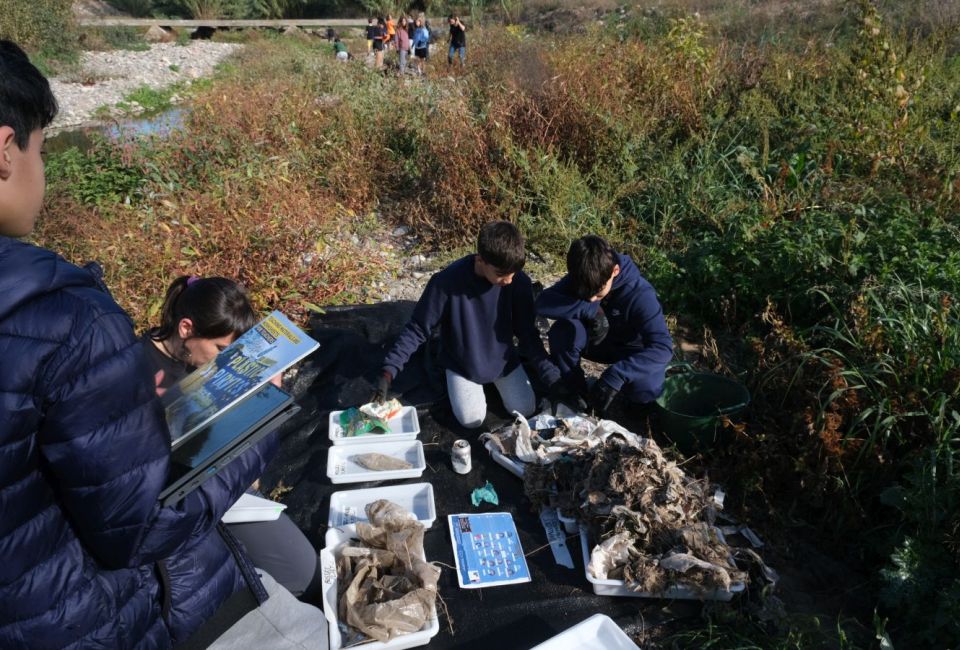Schools and youth associations in Catalonia can now join the European citizen science initiative “Plastic Pirates”.
The only requirement to participate is to be available to carry out a sampling campaign (lasting approximately 3 hours)

Plastic Pirates Go Europe is a citizen science project that aims to start from young people across Europe to study the phenomenon of plastic pollution in rivers. This initiative, which was born in 2016 in Germany, is expanding throughout Europe thanks to the collaboration with similar experiences, such as the Pescadors de Plàstic project, coordinated by the BETA Technology Center of the UVic-UCC.
Plastic Pirates Go Europe offers resources to educational centers and youth associations to facilitate coordinated sampling during autumn and spring in different sections of rivers. The sum of these actions is what makes it possible to collect large-scale data to determine the quantity and type of plastic waste that European rivers contribute to transporting to the sea. Today, a large number of schools and associations in countries such as Portugal, Greece, Bulgaria, Hungary, Austria, Italy, Belgium, Germany, Slovenia, Spain, Georgia and Lithuania are already participating, and it is expected to continue to grow.
As for Catalonia, any educational center or youth association can join. The only requirement to participate is to be available to carry out a sampling campaign (lasting approximately 3 hours) next autumn 2023 and/or during spring 2024. To participate or simply to receive information about the project, it is necessary to register in this form.
Interested centers or youth groups receive a work guide containing general information on plastic pollution and also the sampling protocol to be followed, described in a didactic and detailed manner. It also provides the necessary material to carry out the sampling of microplastics in water. The guide is intended for young people between 12 and 18 years of age, although with support it is possible to carry out the proposed activities with children from 10 years of age (5th and 6th grade of primary school). The work guide and other support materials are available on the project’s website. This year they will also be available in Catalan.
Participating schools and youth associations will have the support and monitoring of BETA TC research staff, who will also suggest online training for teachers to resolve any doubts that may arise. The data collected by the young participants are validated by the researchers and shared on the project website, where the results obtained in the other countries involved can also be consulted. At the end of the course, all the young people involved in the project are invited to participate in a virtual meeting in which the BETA TC researchers explain the results obtained after analyzing all the data collected together.
Plastic Pirates Go Europe is coordinated at the European level by the German research center DLR Projektträger and receives funding from the European Union within the Mission Restore our Oceans and Waters by 2023 program. The BETA Technology Center of the UVic-UCC is the coordinator of this initiative in Spain, together with the University of Burgos and the Oxygen Foundation, and with the collaboration of the Institute of Environmental Diagnosis and Water Studies – CSIC. Its implementation in Spain is possible thanks to funding received from the Spanish Foundation for Science and Technology – Ministry of Science and Innovation.
